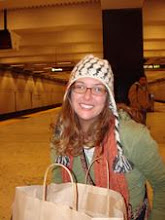Recently I have been working on a Peer Counseling project with Save the Children. First we did a one week workshop targeting the training of trainers. These trainers are current staff members of Save the Children from all across PNG. The goal is for the trainers to gain skills in counseling and apply these skills in their daily work as well as train volunteers in the Youth Outreach Projects throughout the Country.
Save the Children in PNG targets the impact of the HIV and AIDS epidemic on children. Save’s programs focus on promoting HIV prevention, treatment, care and support for vulnerable parents such as female sex workers and men who have sex with men, vulnerable future parents (youth) and vulnerable children.
Save the Children in PNG’s projects include the Poro Sapot (Supporting Friends) Project, the Youth Outreach Project, the Tingim Laip (Think about Life) Project, STI (Sexually Transmitted Infections) Clinical Improvement Project, and a project to work with (OVC) Orphans and Vulnerable Children.
My work here in Madang promoting Inclusive Education aligns with Save the Children’s work including children’s right to health, education, protection and survival.
This week I have been supporting the trainers to facilitate the first Peer Counseling program in PNG! There are 20 volunteers in the Youth Outreach Project here in Madang. These 15-25 year olds are out-of-school, jobless youths who are vulnerable to the HIV epidemic and its impact on their lives.
Working with the incredible staff of Save the Children has opened my eyes to a new reality here in PNG. They are working in urban centers such as markets and bus stops that are notorious for at-risk behaviors including prostitution and drug-use. Save is also working in rural areas with community outreach and rural health projects. The real stories they share touch me.
A staff member in Morseby told me about his struggles within the Poro Sapot Project targeting sex workers. He said there are a significant number of people who are living with HIV/AIDS and because of negative stigma their families have abandoned them and they are forced to live on the streets. The homeless are reduced to roaming alleys and eating only if they are lucky to find something in the trash that day. They aren’t able to take their ARV treatment because they become nauseous and sick if it isn’t taken with food. They are forced to make the decision to sell sex for money to buy food in order to take their medicine. This vicious cycle unfortunately continues to spread the virus among these vulnerable groups.
Another staff member in Moresby working with the Poro Sapot targeting men who have sex with men spoke about the daily challenges he and his friends face. As homosexuality is illegal in PNG, these men face stigma regarding their HIV status as well as their sexual orientation. This inspirational staff member has found ways to support men from around the Country through involvement in activities such as support groups, camping trips, and even a Ms. Universe pageant. Because these men are unable to express themselves openly in their communities, these activities help to create safe environments where their rights are respected.
Most of the staff shared stories about people with mental illnesses. Mental Health is an interesting topic in PNG. Word both on the street and within hospitals, organizations and individuals working within the mental health field here in PNG is that mental illnesses are a result of drug and alcohol abuse, with a particular focus on marijuana use. The belief (the misconception in my opinion) is that people who are “longlong” (the slang pidgin word meaning ‘crazy’) have become this way because of marijuana. Society stigmatizes persons with mental illness in the same manner people with HIV/AIDS and disabilities are stigmatized. These people are rejected from their families, homes and communities and may be left on the streets, thrown in the sea, or hidden in the house.
Increasing my awareness of these realities helps me to apply my work in a more practical way that will hopefully address the real needs of the vulnerable groups I support.
Thursday, June 25, 2009
Subscribe to:
Post Comments (Atom)







No comments:
Post a Comment